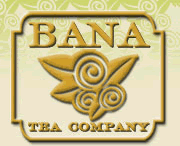
 Wuyi Shan (aka Wuyi Mountains), located near the northern border of Fujian Province in China, is well known not only for its natural beauty and its stunning landscape but also for its renowned Yan Cha. Yan Cha in Chinese is translated as Rock Tea. The tea derived its name from the area in which it is grown. The Wuyi Shan National Scenic Area is made up of huge volcanic boulders of various shapes, meandering streams, limestone caves, high cliffs, and deep valleys. Distinct from those of most tea plantations in the world, Rock Tea bushes are grown in small fields and steep terraces between cliffs and peaks. The subtropical climate, the spring water from the high mountains, and the mineral-rich soil make the area perfect for growing tea. Since 1999, Wuyi Shan has been listed as a UNESCO Heritage Site for its culture, scenic, and biodiversity value. If you believe in the importance of terroir (the regional characteristics where tea is grown), you will understand why Wuyi Yan Cha is so special and wonderful.
Wuyi Shan (aka Wuyi Mountains), located near the northern border of Fujian Province in China, is well known not only for its natural beauty and its stunning landscape but also for its renowned Yan Cha. Yan Cha in Chinese is translated as Rock Tea. The tea derived its name from the area in which it is grown. The Wuyi Shan National Scenic Area is made up of huge volcanic boulders of various shapes, meandering streams, limestone caves, high cliffs, and deep valleys. Distinct from those of most tea plantations in the world, Rock Tea bushes are grown in small fields and steep terraces between cliffs and peaks. The subtropical climate, the spring water from the high mountains, and the mineral-rich soil make the area perfect for growing tea. Since 1999, Wuyi Shan has been listed as a UNESCO Heritage Site for its culture, scenic, and biodiversity value. If you believe in the importance of terroir (the regional characteristics where tea is grown), you will understand why Wuyi Yan Cha is so special and wonderful. Wuyi Yan Cha has approximately 800 different cultivars, of which the most famous four are Da Hong Pao (Big Red Robe), Shui Jin Gui (Water Golden Tortoise), Tie Luo Han (Iron Arhat), and Bai Ji Guan (White Cockscomb). The quality of Wuyi Rock Tea is determined by the growing area and the processing technique. Tea harvested from tea bushes grown within 70 square kilometers of the Wuyi Shan National Scenic Area is considered Authentic Yan Cha (Zhen Yan Cha).
Wuyi Yan Cha has approximately 800 different cultivars, of which the most famous four are Da Hong Pao (Big Red Robe), Shui Jin Gui (Water Golden Tortoise), Tie Luo Han (Iron Arhat), and Bai Ji Guan (White Cockscomb). The quality of Wuyi Rock Tea is determined by the growing area and the processing technique. Tea harvested from tea bushes grown within 70 square kilometers of the Wuyi Shan National Scenic Area is considered Authentic Yan Cha (Zhen Yan Cha).
Tea harvested from tea bushes grown outside of the Wuyi Shan Scenic Area is considered Semi-Yan Cha (Ban Yan Cha). The tea-producing areas within Wuyi Shan are small. This, coupled with the fact that Yan Cha is only harvested once a year, resulted in extremely small yields. As such, Authentic Yan Cha can cost as much as three to four times as Semi-Yan Cha.
The processing of Wuyi Yan Cha is probably the most sophisticated of all teas. There are at least seven processing steps from harvesting to roasting. Each step is crucial to the quality of the finished product. Our friend, Mr. Wang, told us that the processing of Wuyi Oolong is very intense and can take weeks or even months. During tea processing season, he and his crew work around the clock, sleeping only two hours a day for weeks at a time.
Like Pu-erh, Wuyi Yan Cha is conducive to aging as well. As the tea ages, the flavor develops more character and depth. A high-quality Wuyi Yan Cha is highly sought-after and is a must-have in a tea connoisseur’s tea cabinet.


Please see our collection of Wuyi Yan Oolong teas

